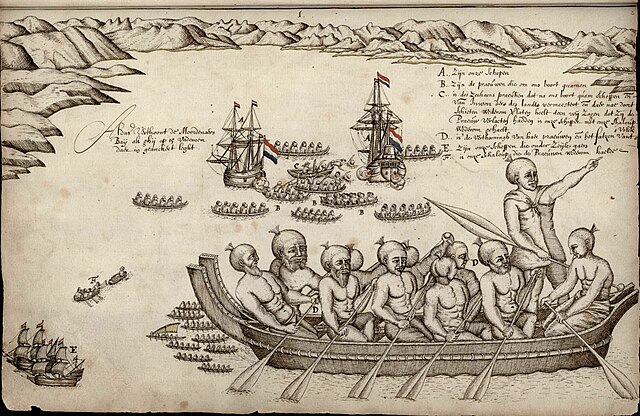Paikea is a notable ancestor who originated in Hawaiki according to Māori tradition. He is particularly known to tribes with origins in the Gisborne District such as Ngāti Porou, and Ngāi Tahu. Paikea is the name assumed by Kahutia-te-rangi because he was assisted by a whale to survive an attempt on his life by his half-brother Ruatapu.
Carving at Whāngārā Marae of Paikea riding a whale
Humpback whales at the South Bank of the Dominican Republic. This species is closely associated with the ancestor Paikea.
Māori mythology and Māori traditions are two major categories into which the remote oral history of New Zealand's Māori may be divided. Māori myths concern tales of supernatural events relating to the origins of what was the observable world for the pre-European Māori, often involving gods and demigods. Māori tradition concerns more folkloric legends often involving historical or semi-historical forebears. Both categories merge in whakapapa to explain the overall origin of the Māori and their connections to the world which they lived in.
Six major departmental atua represented by wooden godsticks: left to right, Tūmatauenga, Tāwhirimātea, Tāne Mahuta, Tangaroa, Rongo-mā-Tāne, and Haumia-tiketike.
Detail from a ridgepole (tāhūhū) in a Ngāti Awa wharenui. Believed to represent one of two ancestors: Tūwharetoa or Kahungunu.
First European impression of (Ngāti Tūmatakōkiri) Māori, at Murderers' Bay, 1642.





